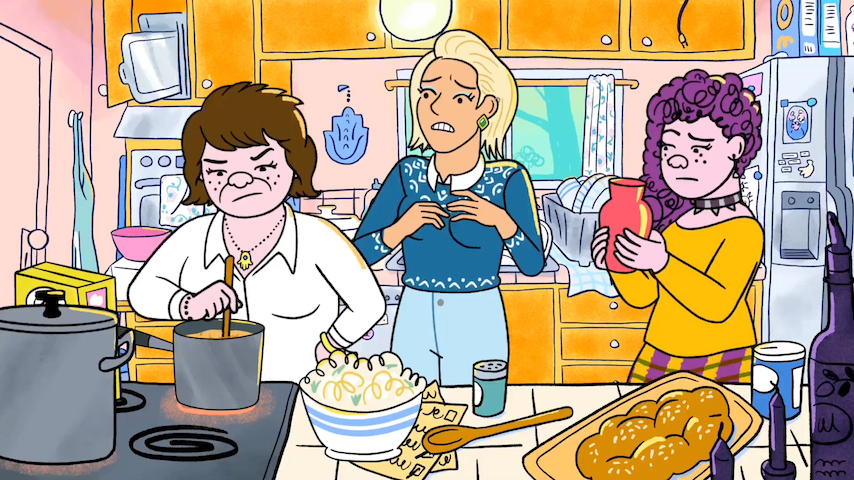Just like BoJack, Long Story Short feels entirely new
Even though Raphael Bob-Waksberg's show tackles some very heavy subjects, it’s decidedly a comedy.
Image: Netflix
Bart Simpson has been in fourth grade for 36 years; Stewie Griffin’s been in diapers since 1999; and more than a decade down the line, Tina Belcher still hasn’t gotten her first period. When you stop to think about it, isn’t that…kinda weird? We’ve come to accept the eternal child as a convention of the animated family sitcom. It’s a big part of the reason why these shows can churn out hundreds of episodes: An actual child actor is eventually going to sprout zits and body hair, but Huey Freeman will be 10 years old forever.
That trope gets turned on its head in Netflix’s Long Story Short, the latest show from BoJack Horseman creator Raphael Bob-Waksberg. The series is all about how people change over the years—and the fact that, no matter how far you run, the past always returns to haunt the present. It plays out like a novel, leaping backward and forward across decades. And just as BoJack did when it premiered in 2014, Long Story Short feels like something entirely new.
The show centers on the Schwoopers, a sprawling Jewish family from Northern California. Though this is a true ensemble piece, the closest we have to a main character is eldest son Avi (voiced by Ben Feldman), an elder millennial struggling with complicated feelings about his Jewish identity and his place in the family. His siblings—Shira (Abbi Jacobson), the middle child with a rebellious streak; and Yoshi (Max Greenfield), the little bro with big dreams and zero follow-through—are grappling with much of the same. Meanwhile, their dad, Elliott (Paul Reiser), is pretty chill—a demeanor that’s in stark contrast to his wife, Naomi (Lisa Edelstein).
The Schwooper matriarch is Long Story Short’s most vividly rendered creation. If you grew up with a Jewish mother, you’ll feel this woman in your bones. For her, love is expressed via needle-sharp criticisms and hovering concern, bolstered by an Old Testament sense of divine justice: “Things don’t happen for no reason,” she insists. “It can’t be nobody’s fault.” But whether Naomi is present or absent, she’s the glue holding this big, messy brood together.
 Keep scrolling for more great stories.
Keep scrolling for more great stories.
